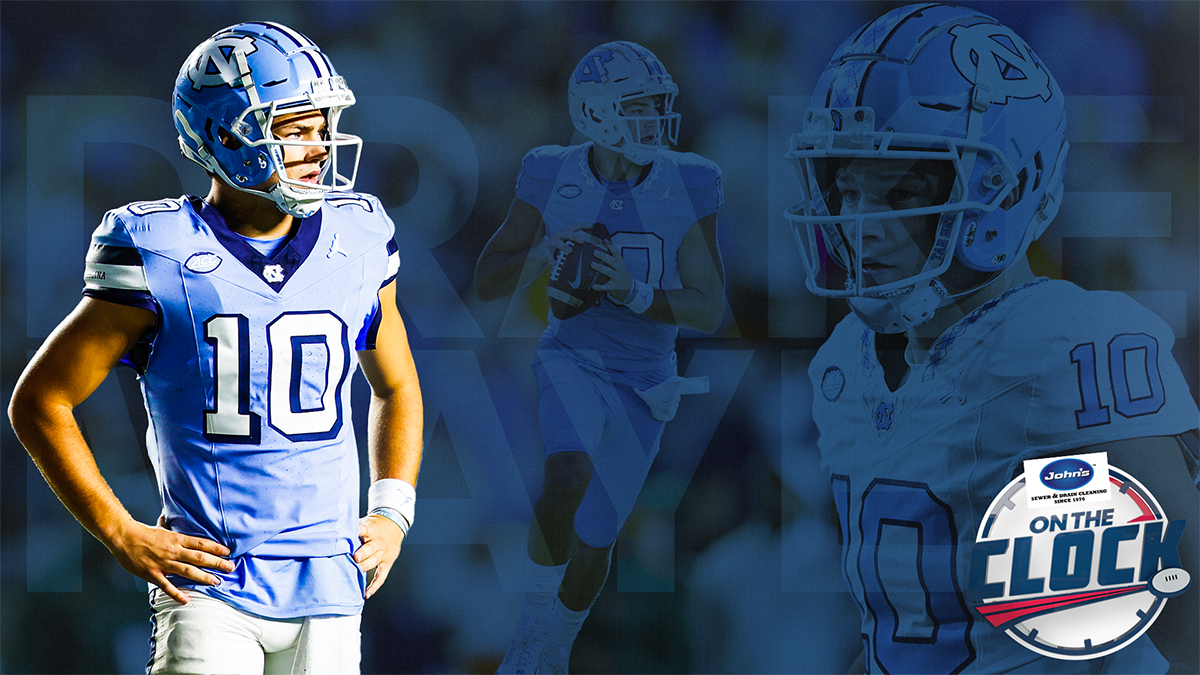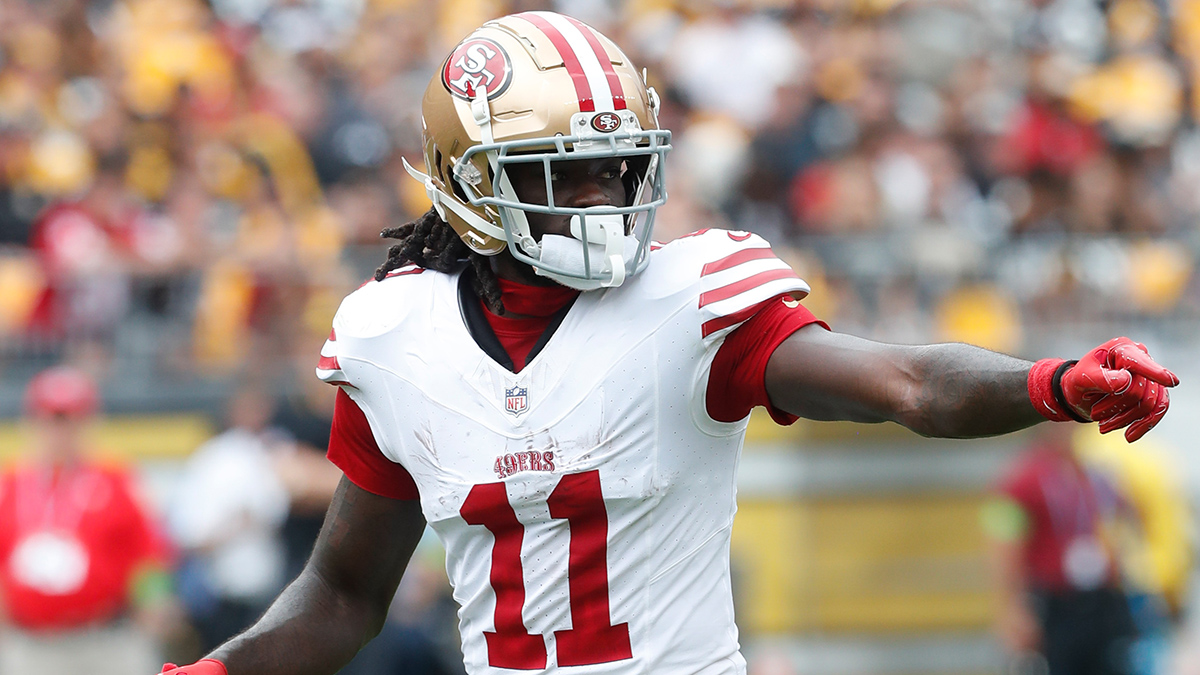
There are times during Tom Brady's Monday morning interviews with WEEI's Kirk and Callahan Show when he feels like opening up about some of the things that have helped him stay on the field as long as he has. In those moments, when his passion for nutrition and position-specific training comes through, he provides insight into an approach that he says he has tried to share with others.
On this particular Monday, Brady was asked if one of his teammates might benefit from a similar focus on hydration and muscle pliability.
Rob Gronkowski has been the best tight end in football for several years due in part to his size and strength, but he had season-ending back surgery on Friday, making this the third year that he will finish on injured reserve since 2012.
"I think it’s always up to the individual," Brady said when asked if it would help Gronkowski to work more with Brady's body coach Alex Guerrero. "He’s dealt with certain things that are almost impossible to avoid on the football field. Sometimes it’s just bad luck. For me, I try and do all the things I can do to avoid as many things as possible and be as proactive as possible so that I can try to be out there every week. I believe that if you have a great foundation, it ends up being a lot harder to get hurt. That’s kind of where I focus my time and energy over the course of the week so that . . . you know you’re going to get hit, you know you’re going to sustain these impacts, and how can your body be prepared to withstand those things?
"I've definitely gone about it a different way than probably 99 percent of the people that have played in the NFL. And I have a lot of belief and conviction how I feel, and I try to instill that in the guys that I am with, but some guys definitely understand it, and work hard at it, and want to do the right thing. Sometimes when you’re young you don’t feel anything, so why do I need to put time and energy into something that I really don’t feel is a problem?
"It probably took for me to be 30 years old to really understand, ‘Wow I really notice a difference.’ I noticed it a little younger than that, but not on a really catastrophic scale. Guys are working hard at feeling as best they can. I think that is important. Every step of the way, every year you try and improve on different things."
Gronkowski has openly discussed that he likes to have fun off of the field, but he has also insisted that he understands when it is time to put in the work to prepare for an upcoming season. He spent part of last offseason training at Jay Glazer's Unbreakable Performance Center -- the same gym where fellow Patriots tight end Martellus Bennett worked out -- where improving mobility and flexibility are part of the regimen along with building strength, speed, power and explosiveness.
New England Patriots
But might Gronkowski find himself avoiding some of the injuries he's experienced if he focused more of his time on pliability? Brady didn't want to take the conversation in that direction, acknowledging that Gronkowski works hard on staying in shape, but he did say that in his opinion there isn't enough focus on flexibility in athletics in general.
"I mean Gronk is so hard working, and Gronk has spent a lot of time with Alex at different points," Brady said. "Gronk has his rehab and he’s going to do it, and I have no doubt he’s going to come back stronger and better than ever. All of us learn every year about things that work and don’t work. And it’s really up to the individual. Gronk, it depends what all the . . . I don’t want to single out Gronk because he’s the only one that's injured. There's a lot of players that get injured over the course of the year, and then you go about changes in your routine because you think this may work and this may not work.
"To me, I feel like it’s very touch-and-feel with how you do take care of your body. Some weeks it is a little more strengthening. Some weeks it’s a little more conditioning. Some weeks it’s a little more pliability depending on how your body feels. I don’t think people spend enough time on pliability at all. I think that is the missing third leg to what athletes in high school should be learning and college athletes. We learn at a young age it’s all about strengthening and conditioning. And strengthening at the expense of pliability, to me, gets you injured. If you’re injured you can’t play. If your body is your asset and you’re injured, you’re not going to have much of a career for any athlete. Every team is trying to incorporate the things they see and they feel and they want to do a better job of. I think, I feel like that is part of what I want to teach people is how I've done it."
Brady said he has had conversations with Gronkowski about his training and that Gronkowski has been "committed." But one wonders if there's any more that a physically-gifted 27-year-old with a long injury history can learn from a 39-year-old who has withstood physical ailments over the course of his career and still seems to improve with age.
Brady admitted that the physical needs for a player at his position are different than the ones for someone who plays tight end and is expected to execute blocks or break tackles. Going with longer, softer muscles may not work when you have to block down on a 320-pound defensive tackle.
"It’s great to have that. It’s great to be a very strong physical person," he said. "That definitely helps you in your field, especially whatever your job is. For me, strengthening is really just to withstand the hits. I don't need . . . You guys saw me block last week, I don’t really strength train so I can go block people. It requires a different level of strength for certain positions, and a lot of people need to put a lot of strength for their positions.
"Whether it's baseball players or hockey players . . . so much of what you guys have seen me do is try to replicate playing quarterback when I work out. Over the offseason I work on my drops and my mechanics so that I can be the best quarterback. Those functional exercises are what's important for me. I don't want to do anything that's going to throw my timing off, and my throwing mechanics, by slowing down or densening certain parts of my body -- my hips or my core -- I need to be really pliable so I can maintain the timing and mechanics of my throwing motion so that I can throw the ball accurately because ultimately that's what my job is."
Brady added: "You can't help the team if you're not out there. Different positions require different levels of strength and conditioning. I think that the key to sustaining the impacts is having your muscles pliable and that's soft and long and the ability to absorb the hits and really balance. That’s what I focus on. I’ve spent a lot of time with Alex keeping my muscles long and soft. Along with that goes the nutrition and feeling my inflammation rates down and keeping my muscles really hydrated. You go on these cross-country flights and you do a lot of things to dehydrate you. I stay very hydrated so it’s a combination of things that I feel put me in a great position to take those hits. Again, there are some that you can’t avoid and that is part of football. The ones I feel that you can avoid, those are the ones I want to avoid, and I think that's how I have stayed out there as long as I have."
The work he has put in with Guerrero, the changes to his diet, the commitment to rest and recovery -- it doesn't feel like a sacrifice to him, Brady went on.
Take Saturday's celebration of the 2001 Patriots that team owner Robert Kraft threw, for example. It sounded like the kind of thing any player would have built their schedule around, but Brady could only check in briefly before getting to bed.
"I think there will be a time to sit back and reflect and enjoy those experiences," he said. "I take them for what they are . . . It's important for me to get my rest. It was nice to see a lot of the guys that I played with, but I couldn’t stay that long because my meetings finished at 8:30 at night, and I wanted to stop in because it’s important for me to see those guys. And Mr. Kraft, he put on a great event and I wanted to just make sure I was supportive of that. But I wanted to get home and to get to bed. Then to get up the next day and to be focused on the game, that’s where my energy was at.
"It’s not a sacrifice because I love it. At the end of the day I love what I do. I love the experiences that I’ve had. That is what I enjoy. I always feel my motivation is that I could have, should have done better.
"After every game that is what I think. 'God, I could have done this. I should have done this.' I think it’s a little maniacal because you do and you deal with so much stuff, sometimes the games, there’s a lot of imperfection in football, and there’s a lot of imperfection of what you do out there, especially when you’re making split-second decisions. It’s gratifying to come out of a game and go, 'Man, that was pretty good game.' And that’s happened, definitely. That is what you’re always trying to strive for. For me, I just want to try and put myself in that position every week to be the best I can be for my team."
As Brady said, some of the things Gronkowski has dealt with have been unavoidable. But one has to wonder, given everything he's been through, if he might not consider a real change in how he takes care of his body -- his "asset," as Brady put it -- in order to more consistently put himself in position every week to be the best he can be for himself and his team.


